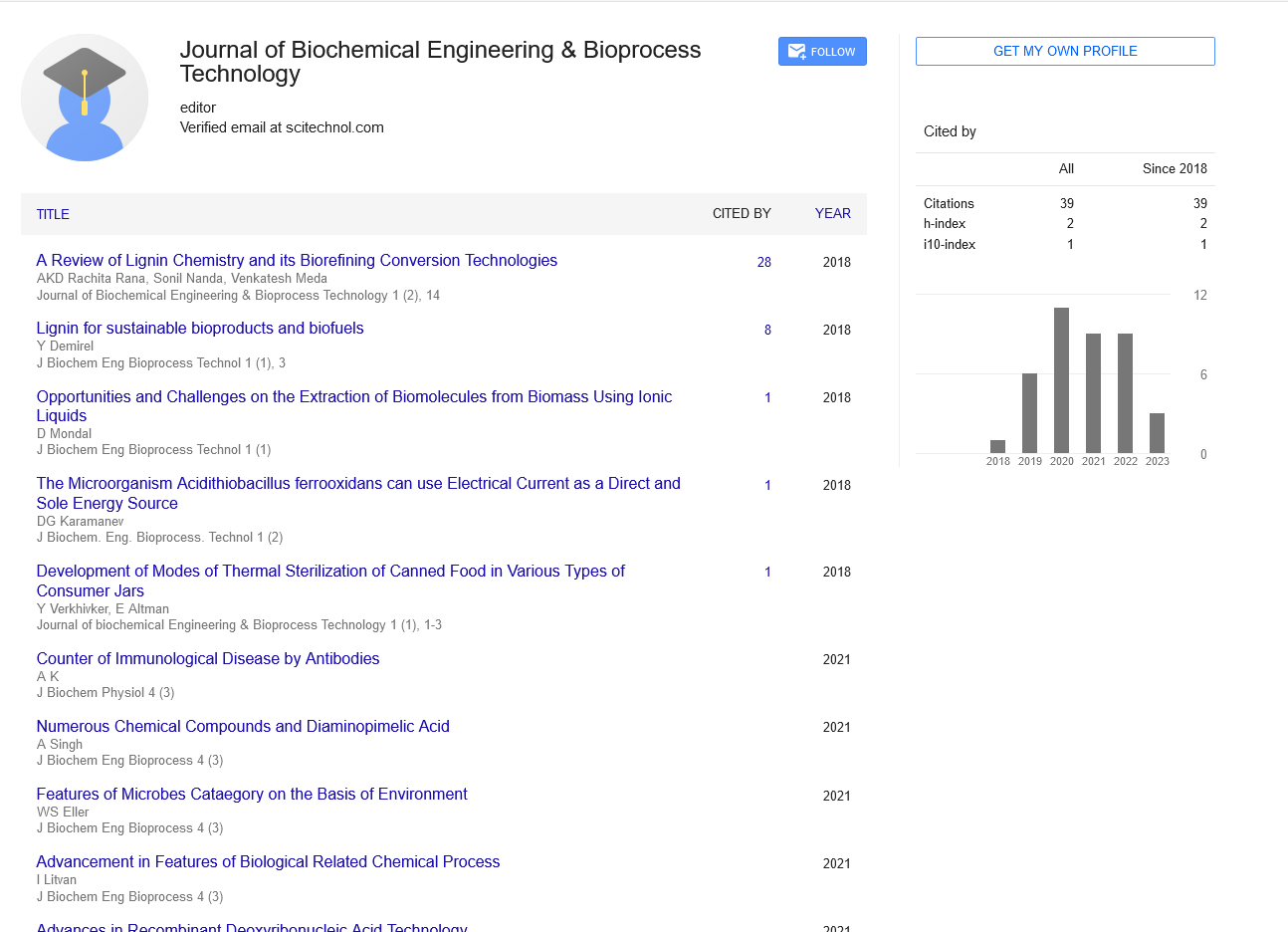Direct integration of bio-gasoline production into current petrorefinery
Aron Deneyer
Centre for Surface Chemistry and Catalysis (COK), Belgium
: J Biochem Eng Bioprocess Technol
Abstract
Sugars, which are the main constituents of biomass, play an important role in the proposed transition towards renewables, but their full potential for the chemical industry is still underexploited. They have a unique carbon skeleton composed of 5 to 6 carbon atoms that are all connected in a linear way. Apart from the presence of oxygen atoms, these carbon chains are identical to the ones found in fossil light naphtha. This means that, providing a procedure for the selective removal of oxygen atoms, sugars potentially have an identical field of application as light naphtha. In this contribution, the direct hydrodeoxygenation of carbohydrate streams into light naphtha is presented. A one-pot biphasic (water:alkane) catalytic system is used, yielding liquid C5-C6 hydrocarbons directly from (ligno) cellulosic feedstocks. The catalytic reaction proceeds at medium temperature and under H2 pressure in the presence of an acidic as well as a redox catalyst. Some essential insights concerning the catalysts, the substrates as well as the organic solvent of this liquid phase cellulose-to-naphtha (LPCtoN) technology are discussed. Besides, a realistic process flow diagram, with LPCtoN as central technology, is presented. First, an efficient reductive catalytic fractionation (RCF), starting from woody resources, is demonstrated to produce a soluble lignin oil and a solid carbohydrate pulp. Second, the LPCtoN strategy, converting the carbohydrate pulp into naphtha, is fully integrated into current petrorefinery processes. The key to success for this integration is the use of fossil light naphtha streams as organic phase, resulting in a direct enrichment with bionaphtha. This bio-enriched stream can immediately be used as substrate in a conventional hydro-isomerisation unit, after which a valuable (bio-)isomerate with a high octane number is obtained. This stream is extremely valuable for gasoline blends, especially taking into account the EU imposed directives of 10% green carbon in fuels by 2020.
Biography
E-mail: aron.deneyer@kuleuven.be
 Spanish
Spanish  Chinese
Chinese  Russian
Russian  German
German  French
French  Japanese
Japanese  Portuguese
Portuguese  Hindi
Hindi 